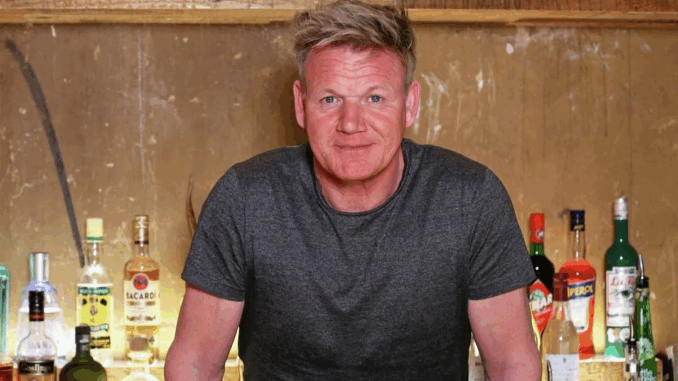
He screams in people’s faces.
He publicly humiliates struggling small business owners.
He calls grown men “idiots” and “donkeys” on national television — sometimes in front of their families.
By all accounts, Gordon Ramsay should be the villain of modern food culture.
But somehow… he’s the hero.
Think about it: In any other profession, this kind of behavior would get you fired, canceled, or at least sent to a very expensive HR seminar. Yet Ramsay has built an empire out of exactly that behavior. Not despite it — because of it.
And the real twist?
We love him for it.
Rage as Redemption
There’s something perversely cathartic about watching Gordon Ramsay obliterate incompetence. When he walks into a filthy kitchen and finds mold, rats, microwave dinners being passed off as “fresh,” he doesn’t just criticize — he detonates.
It’s like a cleansing fire. A moral purge. He says all the things we wish someone would say to every bad boss, lazy coworker, or lying politician we’ve ever encountered. He’s not just yelling at a cook — he’s yelling at the world’s mediocrity.
In this sense, Ramsay isn’t really a chef. He’s an avenger. A cultural hitman for standards.
The Pleasure of Watching People Fail
Here’s an uncomfortable truth: humans are drawn to failure like moths to flame.
Why do we love Kitchen Nightmares? Because it’s a slow-motion car crash of denial, delusion, and dirty kitchens. The chef who thinks his undercooked chicken is “amazing.” The owner who blames everyone but herself. The waiter who’s been pocketing tips. Ramsay storms in like a hurricane of truth — and we eat it up.
It’s Schadenfreude — but gourmet.
But here’s the deeper thrill: Ramsay doesn’t just expose failure. He fixes it. And watching someone rise from the ashes after being utterly annihilated? That’s the drug.
Brutality That Feels Like Love
It shouldn’t make sense. But it does.
When Ramsay calls someone a “disaster,” he’s not doing it to destroy them. He’s doing it because he believes they can be better — and he’s furious that they’re not living up to their own potential. It’s twisted, sure. But it’s weirdly noble.
His cruelty has purpose.
You see it in the eyes of the chefs he mentors. The ones who break down crying when he finally says “Good job.” It’s Stockholm Syndrome mixed with professional awakening.
It’s tough love — served raw.
A Mirror We Secretly Need
Here’s why Ramsay hits so hard:
He reflects back all the parts of ourselves we try to suppress — the ambition, the anger, the frustration with people who just don’t care enough.
Watching him is like holding a mirror to your inner monologue.
The one you keep hidden at work.
The one that screams when someone cuts you off in traffic or turns in half-hearted group work.
The one that whispers, “Is this really the best you’ve got?”
Ramsay says it out loud.
And in doing so, he liberates us.

The Hero We Deserve?
In a world where everyone is told to be nice, be soft, be diplomatic, Ramsay is pure, unfiltered fire. He’s not politically correct. He’s not gentle. He doesn’t hold back.
And maybe that’s why we trust him.
Because deep down, we’re sick of fake.
Sick of fluff.
Sick of leaders who smile while failing us.
Ramsay, for all his rage, gets results.
He takes rotting kitchens and turns them into five-star restaurants.
He molds average line cooks into world-class talents.
He demands excellence — and gets it.
So maybe he’s not the villain.
Maybe he’s just the truth — in chef’s whites.